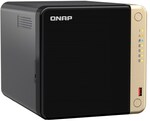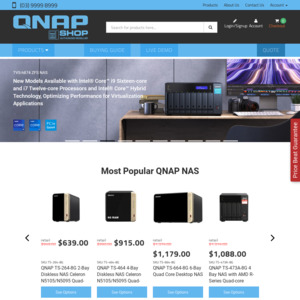This is the new release QNAP mainstream NAS and quite hard to get hold of in many parts of the world outside of Asia I gather.
Powerful yet efficient, featuring 2.5 Gbe networking, an additional 2 inbuild SSD slots, HDMI output and great expansion options.
https://nascompares.com/review/qnap-ts-464-nas-drive-review-…
Will make a sensational media / Plex server. Stomps all over the Synology equivalent in hardware specs. The main weakness of QNAP is a lack of newbie friendliness in setting up many aspects for non tech types, there is likely to be a learning curve involved for many non-basic aspects of using this NAS.
https://nascompares.com/2022/05/04/synology-ds920-vs-qnap-ts…
Certain people love going on about QNAP security issues but these are resolved and as long as you take basic care you'll be fine. I've had two for the past few years through the various waves of attacks and experienced absolutely zero security issues. QNAP have certainly been motivated to up their security game because of this but yes, they did drop the security ball in various ways in the past.
EDIT: Is now $815 which is a scorcher of a price for such a recent and in demand product! Also a similar price at mwave and Scorptec.


$832.15(ebay.com.au) if you're willing to use Afterpay.